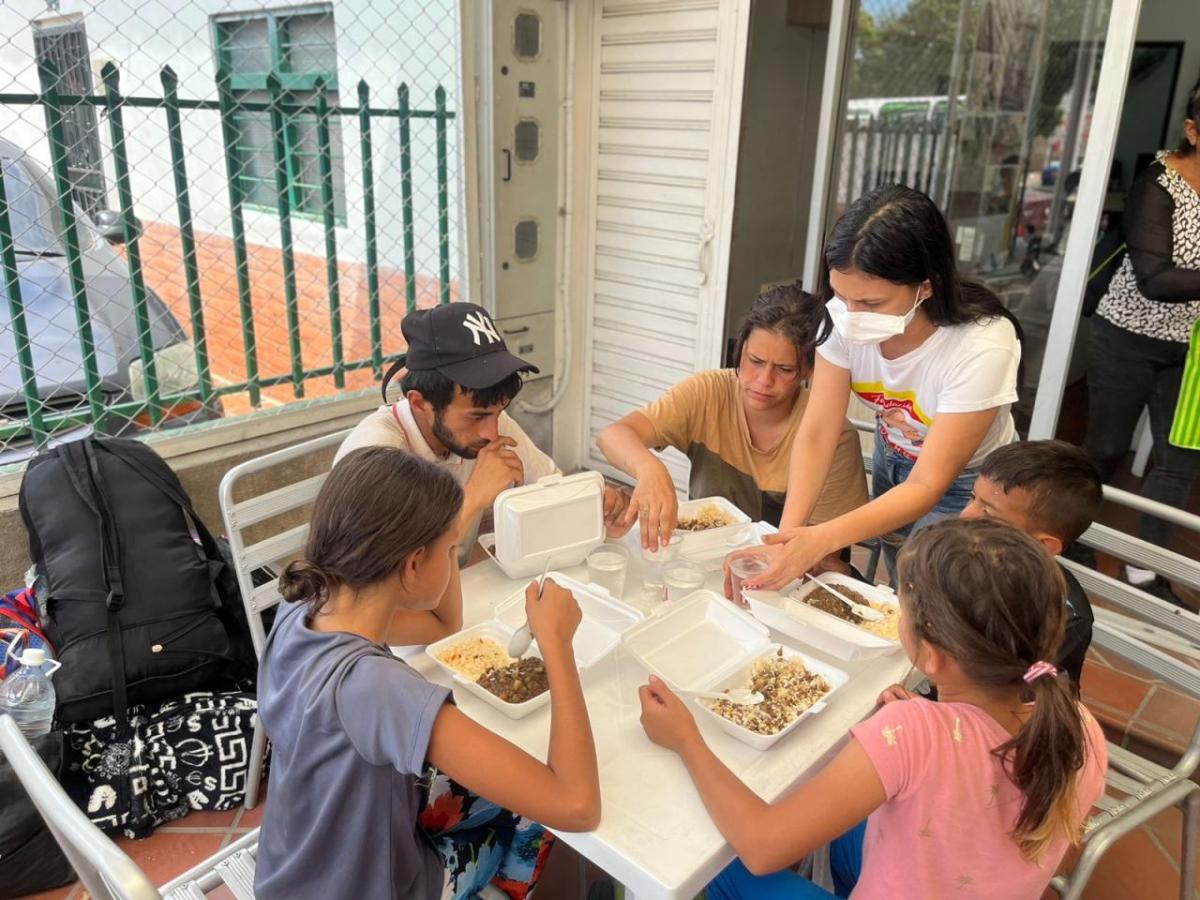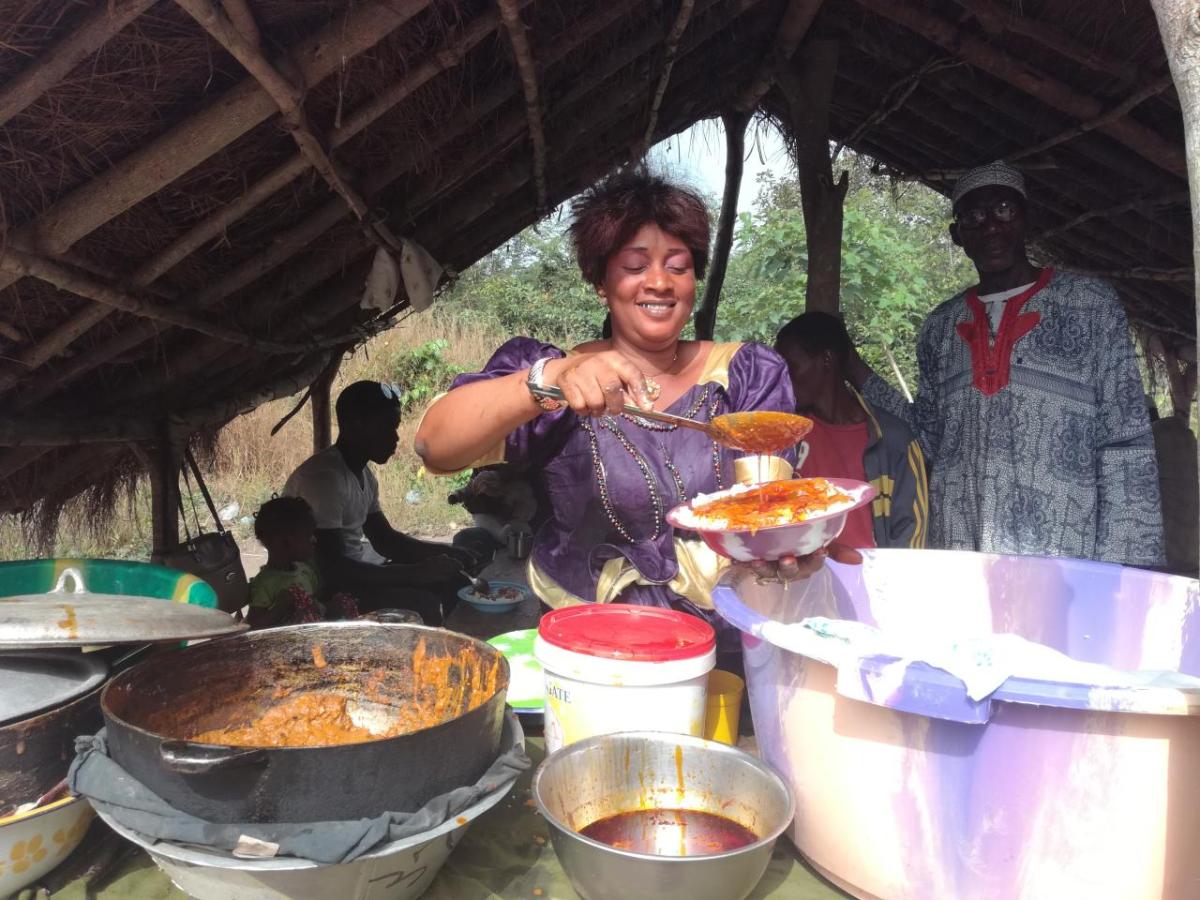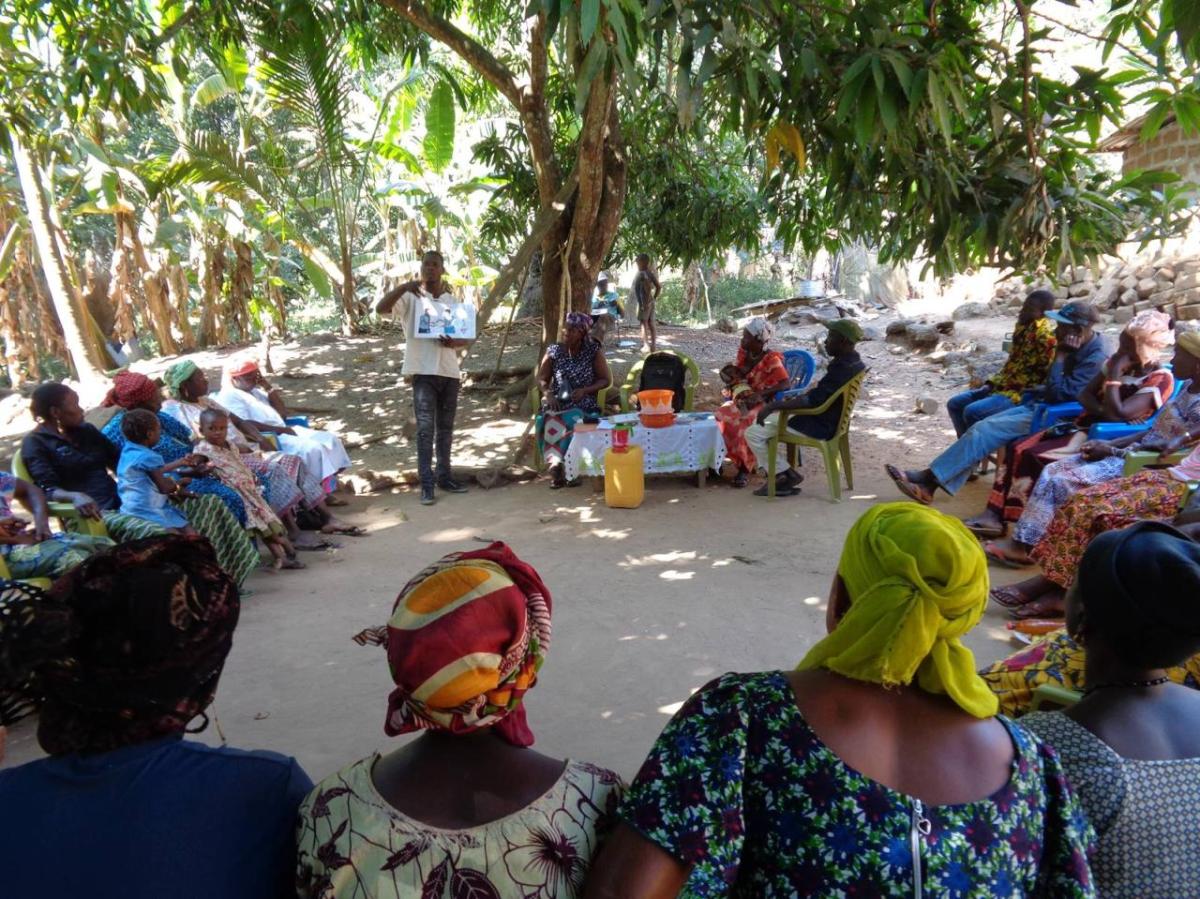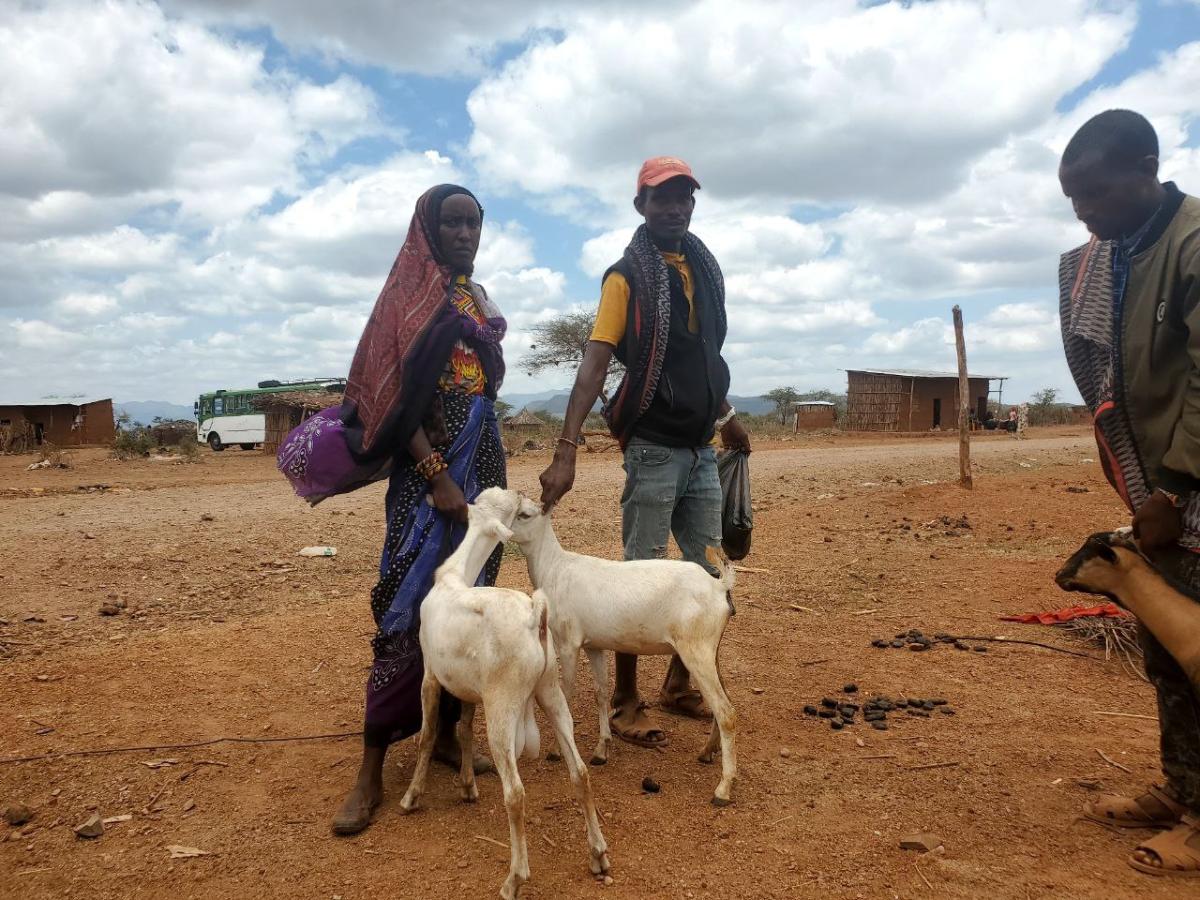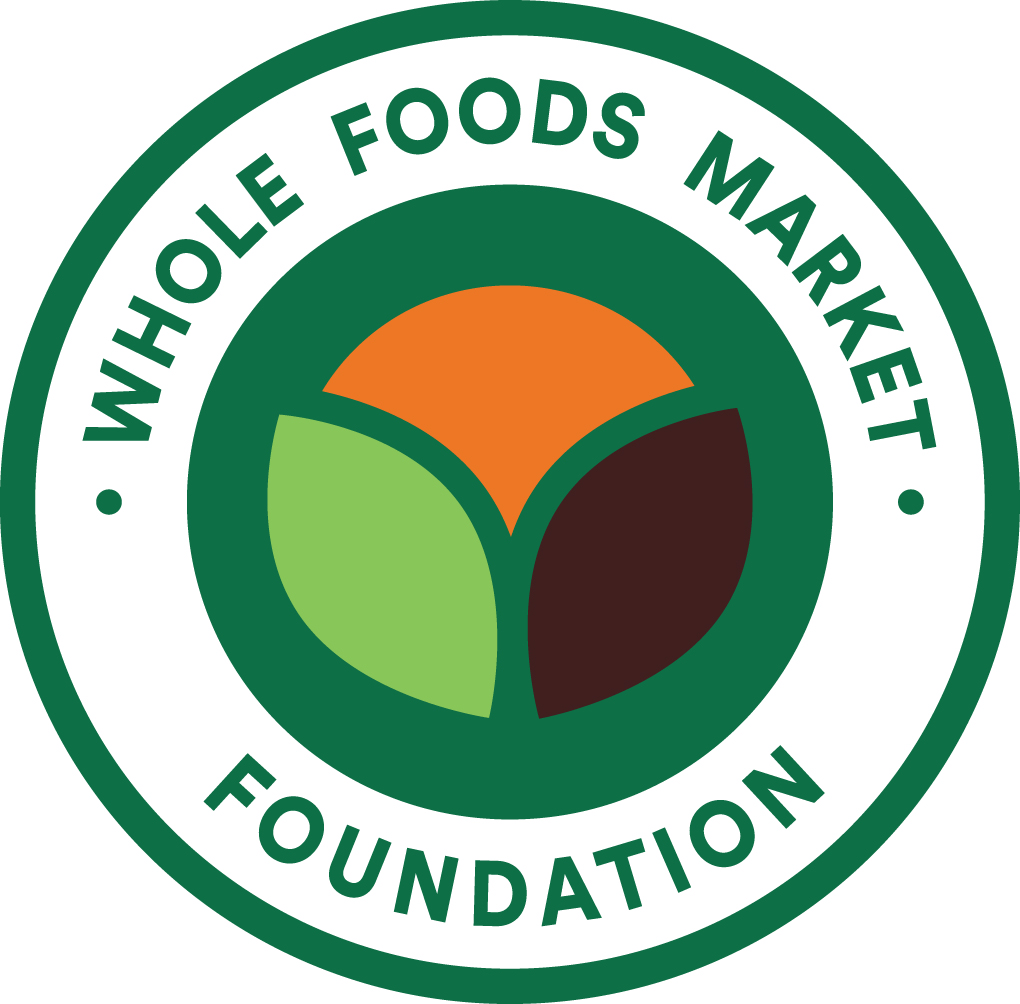Whole Planet Foundation Directs $150,000 From the Kasperick Foundation Towards Combating Food Insecurity in Colombia, Guinea, and Ethiopia
by Daniel Zoltani, Interim Executive Director
Eliminating hunger has been a global priority for decades, but systemic shocks including wars and armed conflicts, the Covid-19 pandemic, trade restrictions, supply chain issues, inflation, and currency instability, have recently led to heightened rates of food insecurity. For many people around the world, the price of food has increased. The situation is often worse for smallholder farmers, who are also dealing with the rising cost of farming inputs, like fertilizer, and thus have less harvest to consume and sell.
Through its 2023 High Impact Fund, and with the financial support from the Kasperick Foundation, Whole Planet Foundation has approved 3 projects to improve food security within vulnerable populations. Each project is with an existing Whole Planet Foundation partner and is marked by its focus on improving nutrition for at-risk people, its prioritization of financially excluded demographics, and its layered and forward-thinking impact. Learn more about each of the 3 projects below.
Acceso – A Whole Planet Foundation partner in Colombia, South America, since 2022
Acceso’s ‘farmer first’ model equips smallholder farmers with the tools they need, buys their harvest, and sells it to domestic and international markets. By providing these farmers with crop market analyses, financial advice, weather data, training in good agricultural practices, and farming inputs, farmers improve their productivity and profits.
Through this 2023 High Impact Fund award, Acceso has committed to buying produce from its network of smallholder farmers, which will be donated to an NGO working on the Colombian-Venezuelan border. This NGO, Nueva Ilusión, specializes in providing health and nutrition services to passing migrants making the long and dangerous trek. Nearly 90% of Venezuelan families do not earn enough money to buy the food they need and, as a result, over 7 million people have fled the country, many bound for Colombia, where currently 2.5 million Venezuelan refugees and migrants have resettled and thousands more are crossing the border every day. Through this project, Acceso and Nueva Ilusión will supply daily meals to hungry migrant families that have few alternatives on their arduous journey.
Project impact:
- 56,160 meals distributed to Venezuelan migrant families, benefitting approximately 32,760 people (50% children)
- Produce purchased from approximately 40 smallholder farmers with less than 3 hectares, providing them with new earned income to improve their own food insecurity.
Wakili – A Whole Planet Foundation partner in Guinea, West Africa, since 2018.
Wakili (meaning “willingness & perseverance”) is a social microfinance organization with the aim to sustainably improve the living conditions of vulnerable households. In the first project together, Whole Planet Foundation provided $300,000 of funds to support Wakili’s growth and scale of their main microenterprise products. In the second project together, Whole Planet Foundation has authorized a total of $600,000 to support microenterprise and agriculture loan products across 4 new branches.
Whole Planet Foundation support under the second project includes an especially remote area called Guinea Forestière. As Wakili has become active here, they found that 85.5% of the inhabitants have experienced food insecurity over the past 12 months. 38% of children under 5 suffer from chronic malnutrition; a statistic very close to the critical threshold defined by the World Health Organization of 40%.
Through this high impact project, Wakili will fight against child malnutrition by providing meals to 1,000 children in the area, through a school catering service run by small, women-led “canteen” businesses. The canteen’s food will be sourced from contracted local rice producers. These farmers will receive technical assistance and small loans for the diversification of their production and the purchase of small equipment, so they can farm year-round. Finally, parents of the school children will also participate in meetings on the importance of a varied and balanced diet.
Project impact:
- 180,000 nutrient-rich meals distributed to 1,000 children (lunch during every school day).
- 500 loans + farming training sessions given to farmers providing the food for the school meals.
- 100 training sessions given to school children’s parents.
Buusaa Gonofaa – A Whole Planet Foundation partner in Ethiopia, East Africa, since 2015.
Buusaa Gonofaa is a microfinance institute that offers loans and collects savings in rural and impoverished areas of Ethiopia. They target women, small farmers, and landless young people in particular, and 65% of their loan portfolio is for the agriculture sector. Ethiopia has staggering rates of food insecurity, due to climate extremes, regional armed conflict, and periods of blocked humanitarian aid.
This project will provide goats to women in poor households, to boost their assets and income opportunities. Buusaa Gonofaa will organize 160 women in Savings Groups of 16-20 women each.
In Year 1, 80 of the women will receive 5 goats each (1 male and 4 female); about a year later, those 80 women that received goats will then transfer the goats’ offspring to the remaining members, until all 160 members have received goats. Each member will receive training in goat rearing and will have access to veterinary services. The project will also mitigate risk by having each member keep enough cash savings, in a group account maintained at Buusaa Gonofaa, to be able to pay the price of one goat in case of death or loss of the goat for any reason. Finally, the group members will have direct financial linkage with Buusaa Gonofaa’s savings and credit services to meet other long-term financial needs.
Project impact:
- 160 women (with an estimated total of 800 family members) will receive 5 goats each, which will provide them with improved nutritional security through goat milk. Each goat will provide about 0.5 to 2 liters of milk per day for 3 to 5 months; this provides a very important source of much-needed nutrition, especially for undernourished children.
- The goats will also serve as an income-generating asset that will improve these households financial resilience.
- All participants in this goat rotating credit initiative will be women, and half of the participants will be female heads of their households.
This fund is so dear to us, as it allows us to address the pressing needs of our partners, outside of our traditional mandate. While Whole Planet Foundation funds are typically reserved to support microloans or productive assets for people living in poverty, our High Impact Fund allows us to fund other innovative initiatives.
Follow Whole Planet Foundation on Instagram for updates from the field, as our Regional Directors visit on-the-ground, active partners annually.

